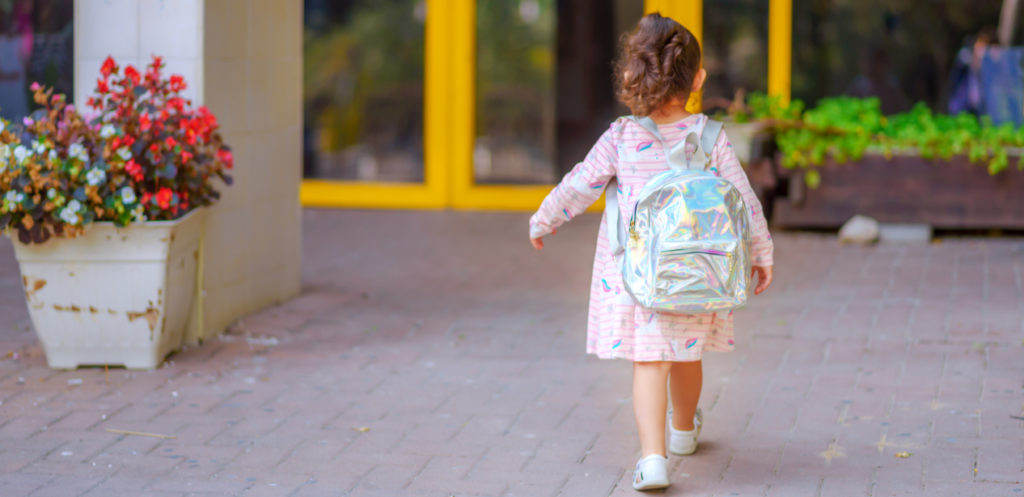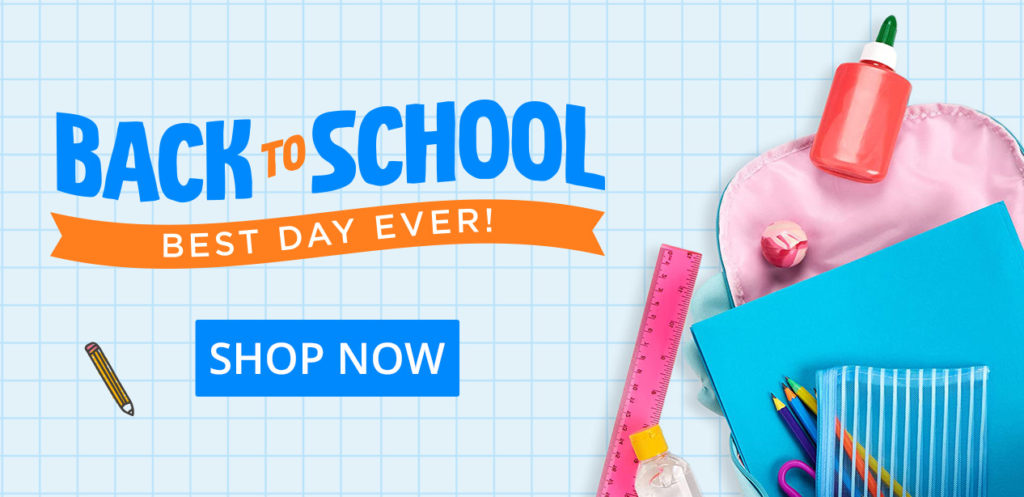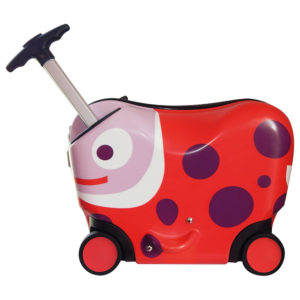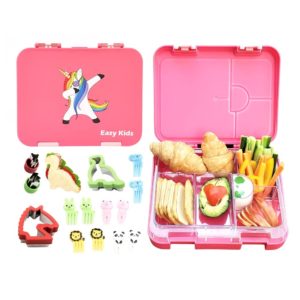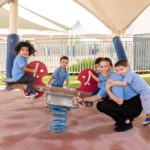Meg Faure is an occupational therapist and the cofounder of Play Sense App. She shares with us tips on how to prepare our toddlers for the first day of nursery. From how our toddlers settle in, the different personalities of toddlers, and to how to prepare them for nursery. All the answers you seek are right here!
First off, how will my toddler settle in the first day of nursery?
Toddlers have different personalities. Some are active and social, while others are more quiet and clinging on to you. Meg Faure divided those personalities into four categories:
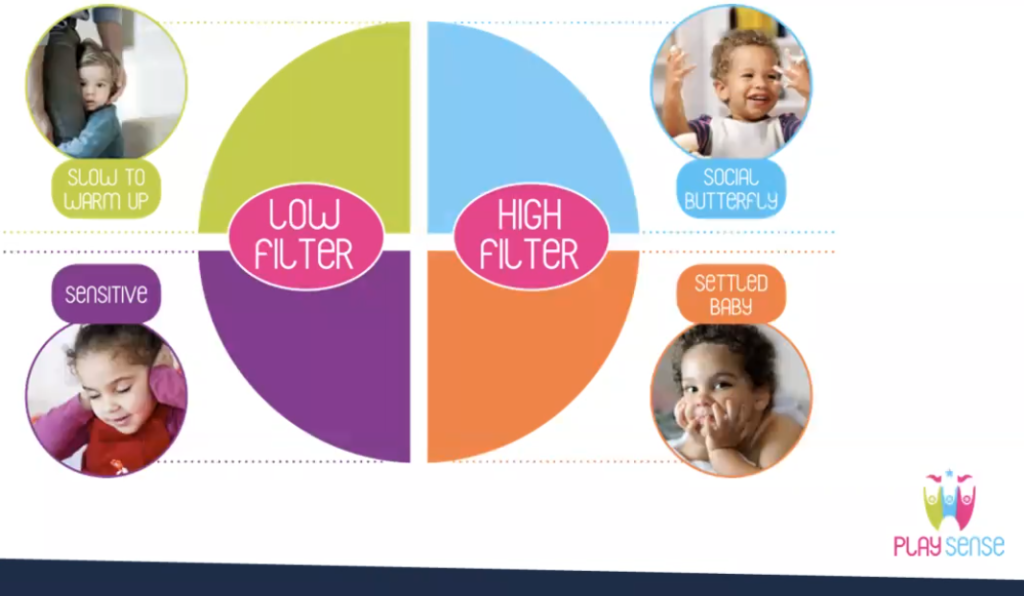
These four different personalities will engage differently. So you need to know the best approach to get to your toddler. This is not only for preparing your toddler for nursery, but you should also consider it when it comes to feeding, sleep, and many other matters.
High Filter Toddlers
Our filter system affects how we engage all the information we get from the world. This is something both adults and toddlers have. And it all depends on our brain and how it works. High filter means that toddlers have the ability to focus better, and filter out all distractions to stay focused and calm. There two personalities that tend to have a high filter system:
– Settled Baby
As a mum, you can tell that you have a settled baby when your toddler sleeps early and eats easily. Also, settled babies get along well with other babies. Having said that, settled babies’ milestones are slightly delayed. Meaning that they might talk or walk a little later than other toddlers their age. But for sure, they love to lay back. They will make you feel like very successful parents because they are easy to get along with. This type of personality will find it very easy to go to school and start a new experience. It will be easy for them to engage and enjoy this new experience including a new place, new teachers, and new babies to interact with. Generally speaking, they won’t have much separation anxiety from their parents on the first day of nursery. So, to sum up, settled babies will easily settle in new environments.
– Social Butterfly
Generally speaking, a social butterfly is someone who loves engaging socially in the world and finds it very easy. Those toddlers learn early on that seeking social interactions makes them learn more and feel good. According to Meg, those babies can be called “adrenaline junkies” because they are all over the place at all times. They just love engaging socially all the time.
The only con you can think of here, is that social butterflies are completely exhausting. Because they will be always moving and looking for someone to interact with. But the thing is, they actually love engaging with the world and with other people. You can tell that your toddler is a social butterfly when he or she settles in easily in new play groups. When it comes to settling in a new nursery or school, social butterflies have no problems. They easily blend in.
Low Filter Toddlers
Low filter toddlers do not filter all the sensory information they receive. The more things going around them, the more they are stimulated. This makes them more sensitive.
– Sensitive toddlers
Sensitive toddlers usually get overwhelmed when there is a lot going on around them. Those toddlers might tend to be a bit more aggressive, whiny, and have more temper tantrums than others. This is because the world around them feels too overwhelming to handle.
– Slow to warm up toddlers
This personality is also super sensitive. But the thing is, they eventually warm up and adjust. Once the new environment becomes understandable and more predictable to them, they let loose. They simply take their time to get used to new groups and new places. Slow to warm up toddlers also find it very hard to let their parents go. They tend to stick to you like a piece of gum. The reason why letting go for them is so hard is that they become anxious that they will not be able to express themselves. Or that their teacher might not be able to read their signals and understand them. These children take a lot of time to settle in new environments and schools.
How to choose the right nursery?
After understanding your toddler, this question will come next. Meg prepared a series of questions to answer that will help you choose the best nursery for your toddler.
1| Is it play based?
This is very important when it comes to choosing a nursery or a daycare. Many facilities try to fit toddlers into upper and primary education. They rely on big groups, table top activities, and worksheets. Unfortunately, this offers closed, indoor, and narrowed learning opportunities.
Meg strongly believes that “Play is the most important thing that your child can do up to the age of 5 years old.”
There are two types of play that are very important when it comes to choosing the right nursery:
One, free play
Which is free uninstructed playtime. It works on enhancing creativity and collaboration. It also builds up toddlers’ super senses such as motivation, participation, engagement, and attention.
Two, guided play
This is where the teacher guides playtime in a meaningful and constructive context. Teachers do so through scripts, toys, and planned and timed activities. This kind of play develops the toddler’s executive function and self regulation.
2| How big is the group?
Big groups can be very overwhelming for some children, especially 2 year olds. So you need to consider the size of the class group to determine if it is a right fit for your toddler. The best scenario is a class of 6 children and one teacher. This way this teacher can easily co-regulate. Meaning to engage with the children, read their signals, and help them express themselves with words. This will be very helpful when it comes to settling in for your toddler.
On the other hand, some mums wonder if they should send their toddlers to nursery at all. Well, Meg answers this dilemma: Yes, you should. Because you need your toddler to be a social learner. This exposure will help your child’s growth both physically, mentally, and socially.
So, at younger ages, smaller groups are essential. But as the children grow, being a part of a bigger group becomes more beneficial because they will be able to self regulate.
3| Are the activities outcome based?
Outcome based activities are that there is only one right answer. For example, when playing with Legos, they should have one shared outcome. All the rest would be considered incorrect. Outcome based activities can focus a bit more than should on perfection. And when choosing a nursery for your toddler, you do not want that entirely. You need a place where your toddler is free, not molded. In other words, a place where your toddler can start his or her learning journey.
4| Avoid the “Cookie Cutter” approach.
According to Meg, the cookie cutter approach is where children are molded. In this approach all children are seen as the same. This is not very beneficial as children must be seen as individuals. The teacher’s learning style needs to be compatible with the child’s personality.
Preparing your toddler for the first day of nursery
One week before the first day of nursery
Starts by driving by the school or nursery before the first day. Engage with your toddler in conversations about friends, and playtime. Get them excited about it by going shopping for the essentials and playing pretend. If your toddler’s nursery has an open tour, attend it with him or her. Or you can ask for a quick tour before the first day. So, try to provide a lot of exposure a week before. In addition, start with an early bedtime routine to help your toddler adjust.
The night before the first day of nursery
Once you have established the early bedtime routine, things will be easier on the night before the first day of nursery. You should also lay out the clothes your toddler will wear, and pack their lunches.
On the first day of nursery
Start this special day by waking early, and getting your toddler ready and dressed calmly. Keep up with happy conversations to excite them for this day. After breakfast, drop your toddler off on time, and get inside with them. Stay for as long as you feel needed. This transition will happen gradually. You might start off by walking them to their class room, and a week later just to the school’s main entrance.
Finally, start gradually with your toddler. Help them make friends their age at first. You can try to get to know other mums and plan out playdates. You might find resistance at first, but keep your best not to give in. And remember, the nursery experience will help your toddler’s growth physically, mentally, and socially.
Also Read:
Toddler Development: The Importance of Play
Make sure to check out more about Meg Faure and Play Sense.


